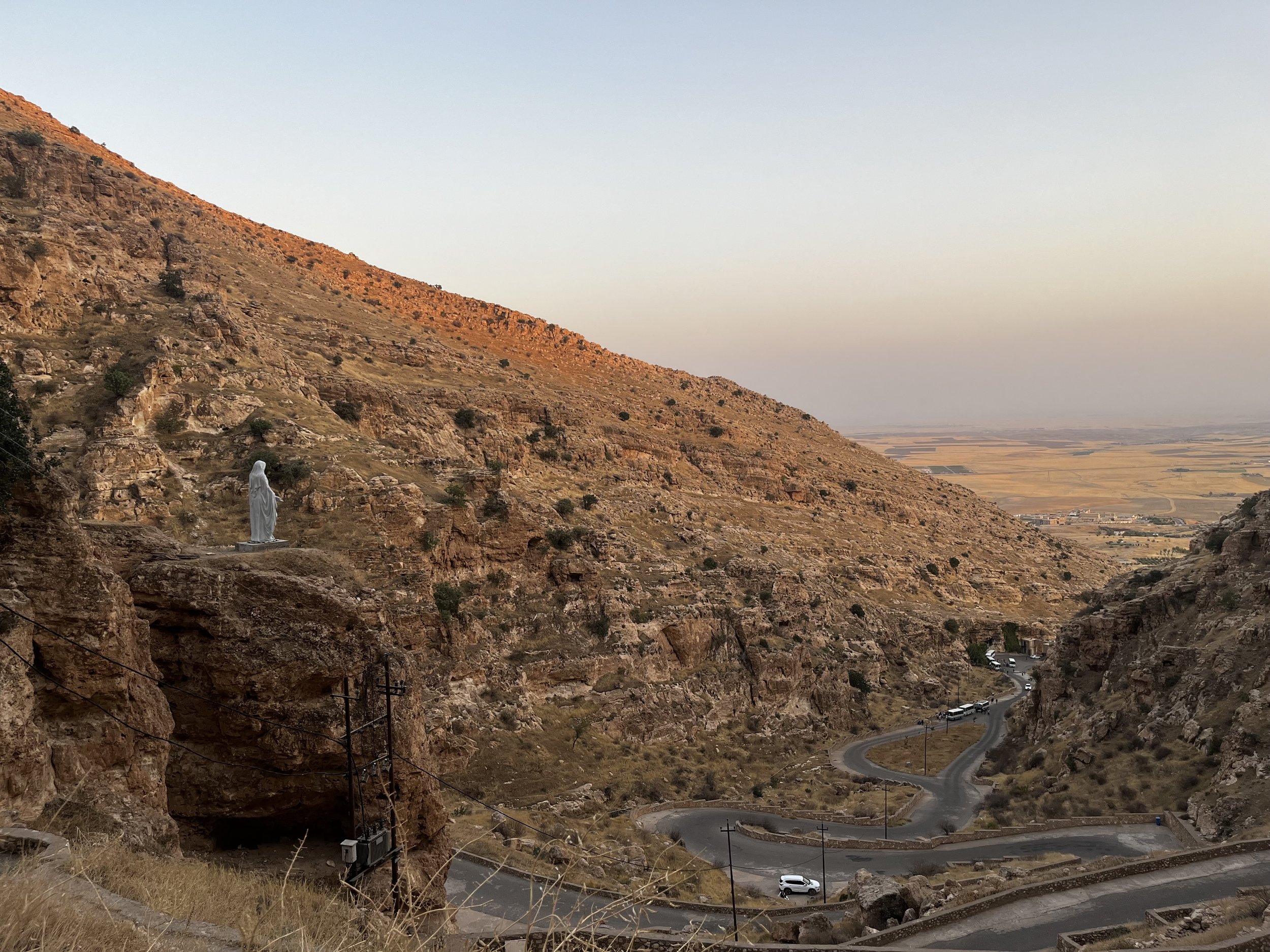The Urgent Need for U.S. Support to Safeguard Assyrian Christians and Their Homeland
By: Onita Narso
The Assyrian community, with its rich history and deep cultural roots, stands at a precipice of extinction. To understand why urgent support from the United States government is critical, it is essential to grasp the historical, cultural, and current plight of the Assyrians in Iraq.
Historical and Cultural Significance of the Assyrian Community
The Assyrian community in Iraq is one of the world’s oldest continuous cultures, dating back over 6,000 years. The Assyrians were a prominent civilization in ancient Mesopotamia, known for their advances in writing, astronomy, and engineering. They developed cuneiform, one of the earliest forms of writing, and their libraries contained extensive records of early scientific and literary achievements. The Assyrian Church of the East, which has been a cornerstone of their identity for nearly 2,000 years, played a significant role in early Christian history. Despite centuries of external pressures, including recent violence and displacement, Assyrians have preserved their unique cultural and religious heritage through their language, traditions, and historic sites like Nineveh and Nimrud.
On top on Raban Hormiz monastery in Alqosh, Assyria
Impact of Recent Amendments to Iraq's Election Law
Recent amendments to Iraq's election law have had a severe impact on Assyrian representation in the Kurdistan Regional Government (KRG). The February 2024 amendment initially removed quota seats reserved for Assyrians, Turkmen, and Armenians, which had previously ensured some level of representation. Although subsequent revisions reinstated 5 of the 11 seats, the distribution remains problematic: Assyrians received only 3 seats, and the allocation was skewed, with more seats going to areas with smaller Assyrian populations. Kurdish proxy groups have appropriated the majority of these seats and the Iranian-backed Babylon Brigade, undermining genuine representation and further marginalizing the Assyrian community.
Dalal bridge, Zakho, Assyria
Effects of ISIS and Regional Conflicts on the Assyrian Population
The ISIS offensive in 2014 had a catastrophic impact on the Assyrian population. The group’s brutal campaign led to the mass displacement of Assyrians from their ancestral lands in the Nineveh Plains. Towns and villages were overrun, homes and churches were destroyed, and many Assyrians were subjected to violence, forced conversions, and kidnappings. Over 200 Assyrian girls were abducted, and the community faced widespread suffering and loss. The ongoing regional conflicts and political instability have exacerbated their displacement and marginalization, making it increasingly difficult for Assyrians to return to their homes and rebuild their lives.
The Call for U.S. Government Support
In light of these pressing issues, the United States government must take decisive action to support the Assyrian community. The letter circulating among international religious freedom advocates outlines several key requests:
1. Support for U.S. Resolutions: Advocate for U.S. Resolution H. CON. RES 152, H. CON. RES 554, and Iraqi Constitution Article 125 to establish a politically neutral protection zone in the Nineveh Plains, ensuring safety for the Assyrian community with locally embedded armed forces.
2. Self-Administrative Rights: Support the granting of self-administrative rights to Assyrians within their historic homelands in the Kurdistan Region of Iraq, securing their administrative, political, cultural, and educational rights.
3. Reinstatement of Quota Seats: Advocate for the reinstatement of quota seats for Assyrians in Baghdad and the Kurdistan Region, ensuring fair representation free from external manipulation.
4. Implementation of Indigenous Rights: Support the full implementation of the UN Declaration on the Rights of Indigenous Peoples to secure Assyrians' rights and future.
5. Enhancing Safety and Infrastructure: Advocate for improving safety, infrastructure, and minority rights in Iraq, addressing specific incidents like the Baghdeda wedding fire.
6. Monitoring and Support: Ensure that these issues are addressed effectively with measurable outcomes and active participation from the U.S. Government in all Assyrian political partnerships.
The survival and preservation of the Assyrian community depend on timely and effective international support. By addressing these critical issues, the United States can help protect the rights, safety, and cultural heritage of the Assyrian people, ensuring they have a future in their historic homeland. The support of U.S. lawmakers and officials is vital in advancing these efforts and fostering a more inclusive and just society for all communities in Iraq.







